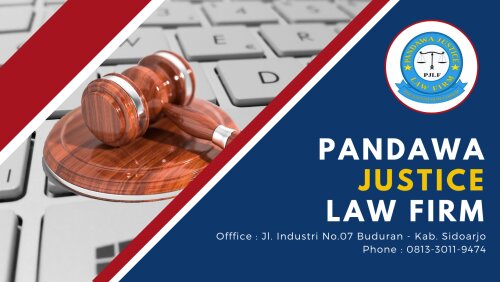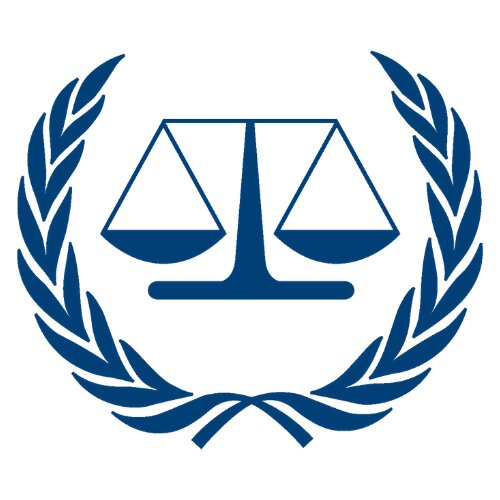Best State, Local, and Municipal Law Lawyers in Indonesia
Share your needs with us, get contacted by law firms.
Free. Takes 2 min.
Or refine your search by selecting a city:
List of the best lawyers in Indonesia
About State, Local, and Municipal Law in Indonesia
State, Local, and Municipal Law in Indonesia encompasses the legal frameworks and regulations that govern the relations and interactions between the central government and the various levels of regional governance, including provincial and municipal authorities. These laws are crucial in maintaining order, facilitating local governance, and guiding development within regions. Indonesia's legal system is a blend of customary (Adat) law, Dutch colonial law, and modern Indonesian statutes. Since the implementation of regional autonomy in 2001, local governments have been granted more authority and responsibility, making it essential for individuals and organizations to understand their rights and obligations under this framework.
Why You May Need a Lawyer
There are numerous situations where individuals or businesses may require legal assistance in the field of State, Local, and Municipal Law in Indonesia:
- Local Governance Disputes: Issues may arise between residents and local governments concerning land use, zoning, and urban planning.
- Permits and Licensing: Acquiring necessary permits for businesses or construction can involve navigating complex local regulations.
- Regional Regulatory Compliance: Businesses often need legal counsel to ensure compliance with local laws and regulations to avoid penalties.
- Public Projects and Infrastructure: Legal guidance might be necessary for engaging in contracts or litigation over public works.
- Local Taxation: Understanding local tax obligations and resolving disputes with local tax authorities can be an intricate process.
Local Laws Overview
State, Local, and Municipal Laws are essential in the landscape of Indonesian governance. Here are some key aspects:
- Regional Autonomy Law: This law grants districts and municipalities the authority to manage and regulate local governance matters, which includes education, health services, public works, environment, and transportation.
- Land-use Regulation: Local governments have specific zoning laws that dictate the use of real estate, impacting housing development and industrial activities.
- Customary Law Integration: Local governments can incorporate Adat, or customary laws, into their regional regulations, which can affect social and cultural aspects of governance.
- Municipal Taxation: Local governments have the ability to impose and collect taxes that fund regional development and services.
Frequently Asked Questions
What is regional autonomy in Indonesia?
Regional autonomy refers to the decentralization process initiated in 2001 which allows local governments greater control over political, administrative, and fiscal matters previously managed by the central government.
How does local government authority affect businesses?
Local governments can impose regulations on matters such as business licensing, environmental compliance, and labor. Businesses must adhere to both national and specific local regulations.
What is the role of customary law in Indonesian local governance?
Customary (Adat) law is often used in local governance, especially in rural and indigenous communities, covering areas such as land rights, marriage, and local dispute resolutions.
How is zoning handled in Indonesia?
Zoning in Indonesia is managed by local governments, which designate specific areas for residential, commercial, and industrial activity, influencing land use and development projects.
Can local laws differ significantly from national laws?
Yes, local laws can differ based on regional needs and cultural factors, though they must still align with overarching national legal frameworks.
What are the penalties for non-compliance with local regulations?
Penalties can include fines, business closure, revocation of permits, or other legal actions, depending on the severity of the non-compliance.
Do foreigners need to be concerned with local laws?
Yes, any person or organization operating in Indonesia, including foreigners, must comply with local laws regarding business operations, property purchase, and residency requirements.
How do I challenge a local government decision?
You can challenge a local government decision through administrative appeals or judicial review in Indonesian courts, often requiring legal representation.
What agencies handle municipal law matters?
Local government offices handle municipal law matters such as licensing, zoning, and public works, while disputes may be addressed in local courts.
How are local disputes resolved?
Local disputes can be resolved through mediation facilitated by local government agencies or via litigation in local courts depending on the nature of the issue.
Additional Resources
Several resources can assist with understanding and navigating State, Local, and Municipal Law in Indonesia:
- Ministry of Home Affairs (Kemendagri): This government entity oversees matters related to regional governance and autonomy.
- Indonesian Bar Association (PERADI): Offers a directory of licensed attorneys who can provide legal assistance.
- Local Government Offices: Websites and offices of provincial and municipal governments provide resources and contact information for local regulatory issues.
- Legal Aid Organizations: Provide free or low-cost legal services to individuals dealing with local governance issues, especially in urban areas.
Next Steps
If you need legal assistance in State, Local, and Municipal Law in Indonesia, consider the following steps:
- Identify the Issue: Clearly define the specific issue or question you have regarding local laws and regulations.
- Gather Documentation: Collect any relevant documents such as permits, notices, or communications that relate to your legal matter.
- Consult a Lawyer: Seek advice from a legal professional familiar with Indonesian State, Local, and Municipal Law to understand your rights and options.
- Reach Out to Local Authorities: Contact the relevant local government office for guidance or information specific to your situation.
- Pursue Legal Action if Necessary: If required, be prepared to file an appeal or initiate legal proceedings with the help of your lawyer to address the concern.
Lawzana helps you find the best lawyers and law firms in Indonesia through a curated and pre-screened list of qualified legal professionals. Our platform offers rankings and detailed profiles of attorneys and law firms, allowing you to compare based on practice areas, including State, Local, and Municipal Law, experience, and client feedback.
Each profile includes a description of the firm's areas of practice, client reviews, team members and partners, year of establishment, spoken languages, office locations, contact information, social media presence, and any published articles or resources. Most firms on our platform speak English and are experienced in both local and international legal matters.
Get a quote from top-rated law firms in Indonesia — quickly, securely, and without unnecessary hassle.
Disclaimer:
The information provided on this page is for general informational purposes only and does not constitute legal advice. While we strive to ensure the accuracy and relevance of the content, legal information may change over time, and interpretations of the law can vary. You should always consult with a qualified legal professional for advice specific to your situation.
We disclaim all liability for actions taken or not taken based on the content of this page. If you believe any information is incorrect or outdated, please contact us, and we will review and update it where appropriate.
Browse state, local, and municipal law law firms by city in Indonesia
Refine your search by selecting a city.

















